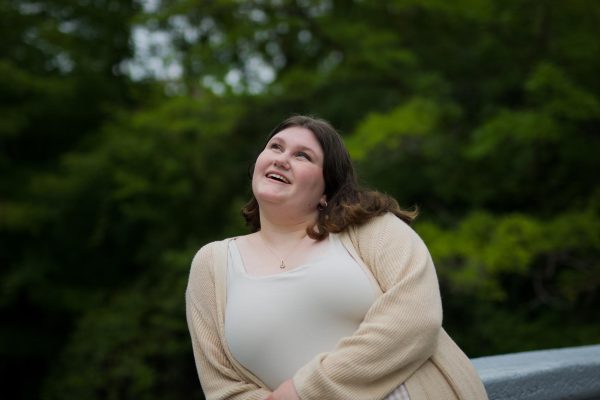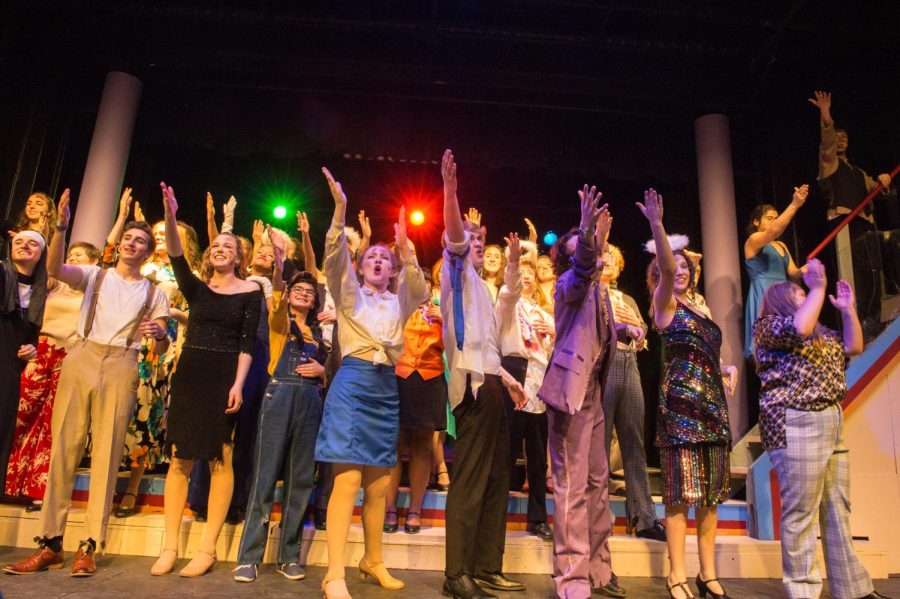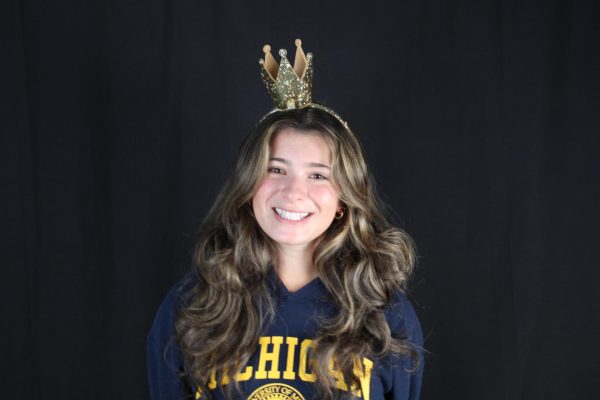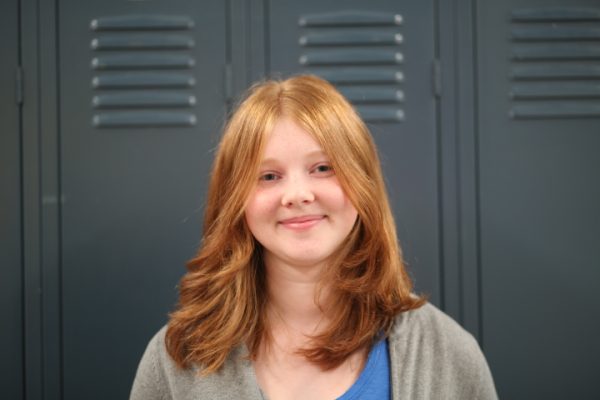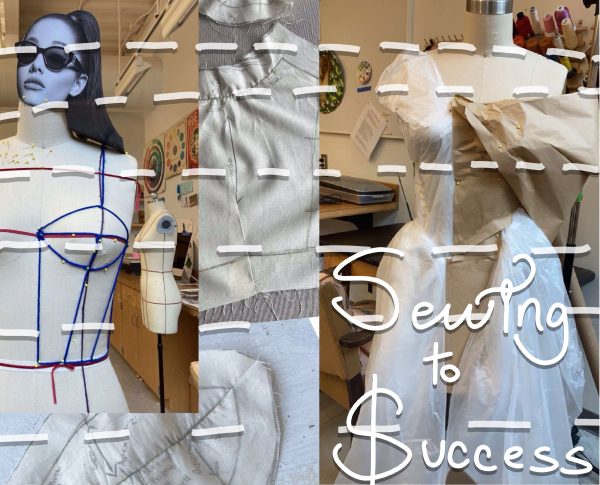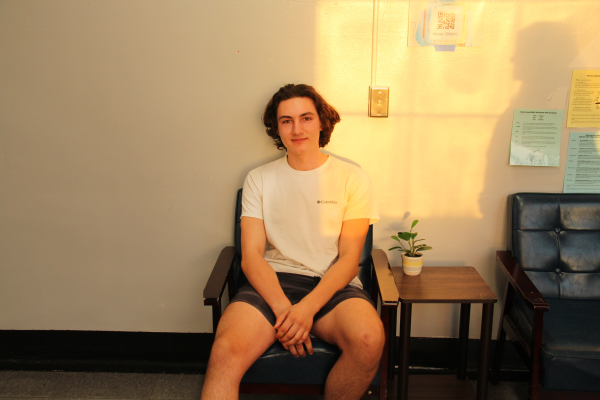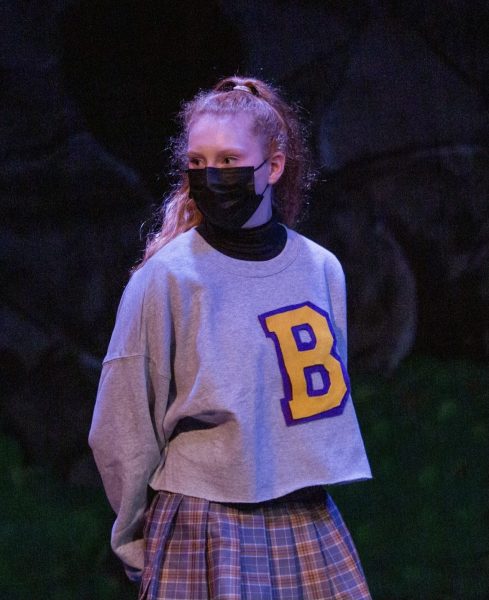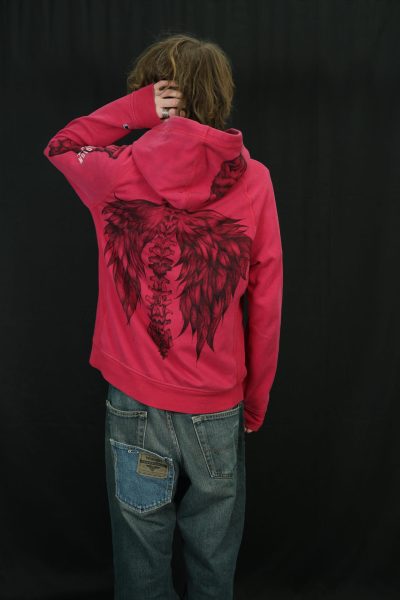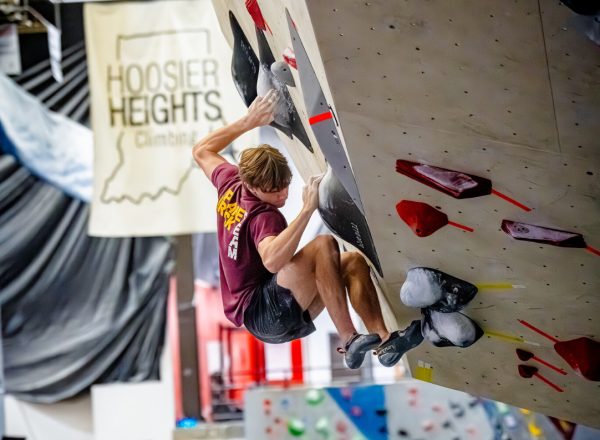The History Of CET
CET cast concludes their performance with arms extended to the audience.
Seven CET and CHS alumni and one previous director share how CET has changed since they were involved.
What did you like about CET?
Jones-Perpich: I loved CET because it was my home base for all four years of high school. When I started in Fidler, I was a Skyline student, and I was looking for something to do in the winter. I looked forward to it every single day and most of my closest friends were from there.
Kurihara: I always liked the way that CET had something for everyone. You could be outgoing and extroverted or the quietest person in the room and still have something important to contribute to the group.
Chappell-Lakin: CET always felt like my second family. I was comfortable there, and I could always be myself. Doing something you love with the people you love is so special.
Rosa-Davies: Early on, I loved being on sets crew and feeling like I’d contributed something to the composition of the show in a very hands-on way. It was so cool to learn how to use a power-drill or what a socket wrench was, and to work with people who were as dedicated as I was. Later on, I loved being a leader. Stage managing was very well-suited for me both because I love to organize things and because I enjoy structuring and working with a team. Throughout all my time, I enjoyed the sense of community and putting in my effort for something for all four years of high school.
Scobey-Thal: I liked how small and scrappy we were. We didn’t have the resources that Pioneer had, but our shows were just as good. We just had this little black box on the second floor and we had to turn it to a new world every show. That made our community strong. CET felt more intimate and close-knit than the shows I did at bigger schools.
Schnell: As someone coming into the Community knowing no one, CET provided me with friendly faces in the hall. I had people to talk to during class. I made a lot of friends through CET, some like-minded and some completely new people. Alongside the wonderful productions, it was such a close-knit community.
Sickman-Garner: I loved how much of a community CET is. Everyone puts so much energy and effort into the work they’re doing, and it’s always so cool to see it all come together for the performances. I think the fact that everyone volunteers their time and participates just because they’re passionate about what they’re doing is also amazing.
Strassel: CET was a place where I could create great art, push the boundaries, try out big ideas and have fun with an extraordinary group of people. It was a dream job.
What were CET’s values when you were involved?
Jones-Perpich: CET was my biggest sense of community. I loved being able to show up every day and work together on something and feel like we all cared about what was going on. I felt that there was a strong sense of leadership and mentorship that created a beautiful community.
Kurihara: When I was in CET, there was a big effort to make it a safe place for everyone. Whether this was through Quinn or through fellow students, I think a lot of people found security in being part of the group. A lot of us wanted to create a space where we could express ourselves without judgment.
Chappell-Lakin: There was a big emphasis on the idea that we were an ensemble. Every member of the cast and the crew was seen as incredibly important. Every show we did would not have been the same without every single person who was involved.
Rosa-Davies: CET’s goals were to work hard, respect others and communicate responsibly.
Scobey-Thal: Everybody deserves their moment because everybody pitches in. Everybody has something to give. Come in and do your work and you will be a part of something bigger than yourself!
Schnell: I feel at the time CET wanted anyone and everyone to feel comfortable enough to participate. We were big on inclusivity and accessibility which theater doesn’t always condone. Quinn was huge on getting everyone who auditioned onstage. I also remember a real emphasis on working together as the ensemble, remembering that theater is a collaborative practice. Everyone needed to put in effort for the production to reach its fullest potential and we all needed to see each other doing that.
Sickman-Garner: CET relied on trust. Putting a production together forces everyone involved to depend on each other, because each show has so many moving pieces that need to line up.
Strassel: We always valued the idea of working together as a team. Every single member was equally valuable. We also valued the idea of pushing ourselves to do something great while supporting each other every step of the way.
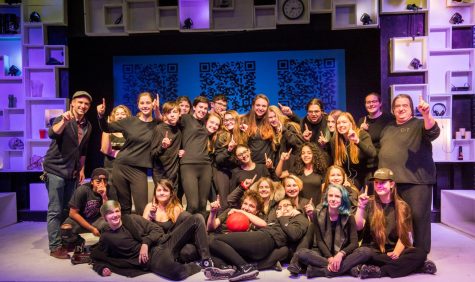
What memories do you have of CET?
Jones-Perpich: The warm ups that we would do before every show was the most incredible thing and that’s not something that has happened to me in theater after graduating highschool. We would go up to the third floor before every show and warm for half an hour. That was a big way that traditions got passed down. We had traditions before I was in CET that I knew everything about because we were taught them in warm ups with chants and games in that room and I felt like it brought us all together and I think about that all the time because it’s so nostalgic for me.
Kurihara: One of the things that I remember fondly is Quinn’s notes during tech week. Everyone was low on sleep, and he was always extremely stressed. He would sometimes give notes that consisted of one word, and no one would be able to figure out what he meant by it—not even him. It was a stressful time, but in those moments, we all laughed together.
Chappell-Lakin: I will never forget when we did “Disaster!” On opening night there was a series of things that went wrong including a thunderstorm, a tornado warning (that delayed the show) and bats flying around the school. Through all of this we still put on a great show and created a memory that I’m sure none of us will ever forget.
Rosa-Davies: Generally most of my funniest and best memories happened after hours, when I would be staying late with crew or Quinn working on something for the next day during tech week. All the memories mash together.
Scobey-Thal: Every time Quinn got frazzled it was pretty hilarious. I guess what comes up most of all is a rehearsal for Just Desserts my senior year, when I did an original sketch with one of my best friends, Milo Tucker-Meyer. We had sort of written it, but spent an afternoon with our cast just improvising and doing new bits and figuring out what it was. It felt like I was laughing harder with Milo and our cast than I had ever laughed before, just making these ridiculous suggestions and making up monologues about Yertle the Turtle. CET often felt like this — you were at the center of the theatrical universe & nothing could possibly be as funny.
Schnell: I don’t know if CET still does this but when the audience starts to enter the school and get to their seats in Craft, the actors go up to the third floor do warm ups and laugh, scream, and cry our hearts out, hyping each other up before going to places.
Sickman-Garner: When we were doing “School of Rock”, Jasmine Lowenstein and I showed up to one of the performances wearing almost the exact same outfit. We were both wearing the show t-shirt, so it wasn’t actually that much of a coincidence, but we took a picture and I remember thinking it was funny.
Strassel: I will never forget the opening night of “Disaster!” Five minutes before the show started we went into a tornado lockdown and the entire cast, crew and audience had to shelter on the ground floor. It was crazy because the show was about disasters and we experienced the threat of a real-life one along with the stress and excitement of opening night.
Have you noticed CET changing over the years?
Jones-Perpich: It seems like traditions have continued with Emily. Also I saw that someone in CET wrote a musical. That never happened when I was in high school, at least not as far as I knew.
Kurihara: When I joined CET, I remember there being a larger divide between the cast and crew. There were sometimes bad feelings, with people experiencing a lack of appreciation or a condescending attitude from both sides. During the time I was in CET, this changed a lot. By the time I was a senior, lots of people did both cast and crew, and the student board was a good mix of the two. They weren’t as separate, and that was good for the group as a whole.
Chappell-Lakin: I only experienced CET while it was being run by Quinn Strassel and it was pretty consistent throughout the years. I have no idea what the program looks like now but I’ve heard nothing but good things.
Rosa-Davies: So much changed simply with Covid, and with the switch from Quinn to Emily. This change may easily have been in part due to me growing up and getting a change in perspective, and growing up through Covid in addition to the directorial switch. I can certainly speak first-hand to what has changed in the crew, but less so in an acting sense. When I first started CET, all the freshmen (myself included) feared the upperclassmen, and I thought they were so high above me. I think part of the system when I came in catered to that— upperclassmen were more likely to get lead roles and leadership positions, as Quinn was especially conscious of students proving their commitment and dedication and giving committed and talented students a good role before they graduated. I am not so sure that that style has changed since Emily has taken over, but I have noticed more underclassmen at large receiving better roles and leadership younger than when I was an underclassman myself. Of course, everyone’s leadership style is different, whether Quinn or Emily, but CET is more than its director. Something that has never changed is that CET has always drawn in people who like to work as a team, who like to problem-solve, and who like to create something amazing together. I have met and worked and problem-solved along with some of the most amazing people during my time at CET. I was credited with a lot of success in various areas while at CET, but there were so many things that I didn’t know that others helped me with, and sometimes solved for me. This was particularly true while working on crew.
Scobey-Thal: The shows have only gotten better. I remember coming back during college for the production of “Into the Woods” and saying to Quinn, “we never did anything like that.” But I think that communal feeling is still the same.
Schnell: I still follow some CET accounts on instagram and I love to see what shows you are doing and see that y’all are still having so much fun. Of course it’ll never be the same over the generations but I’m relieved to see it’s still goofy and weird over there and that makes me proud! I’ve heard things about Community HIgh changing and I hope CET can keep the quirky reputation.
Sickman-Garner: I think COVID has probably changed CET a lot. I graduated the spring before everything went back in person, so I don’t have a super clear idea of exactly how, but I do think it was harder to keep the community together and bond as a group when we could only meet virtually.
Strassel: One of the things that makes me most happy about Emily Wilson-Tobin leading the group is the continuity and the feeling that the camaraderie and positive support and artistic quality seem to be as great as ever. It still feels like home when I come to see CET shows.
